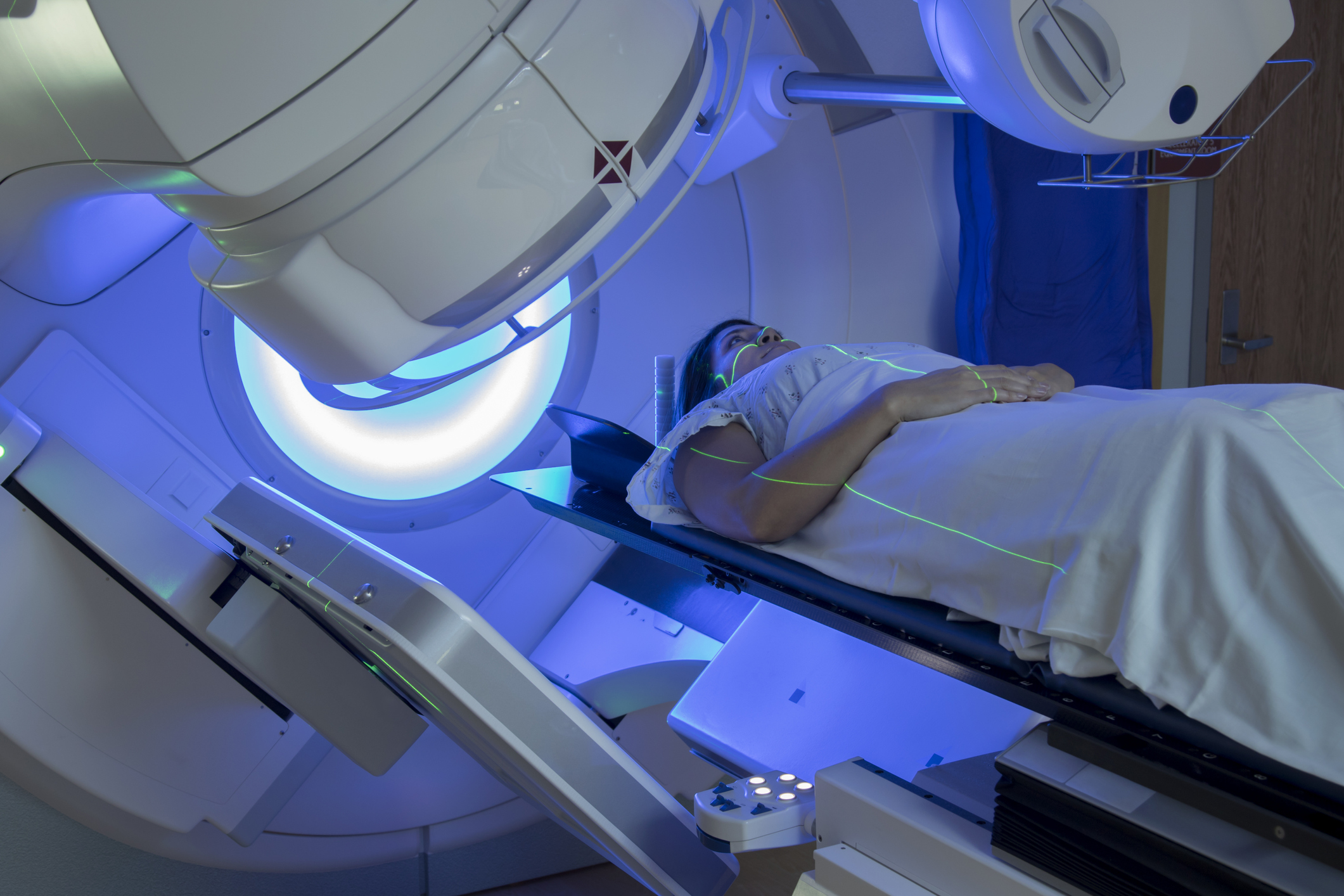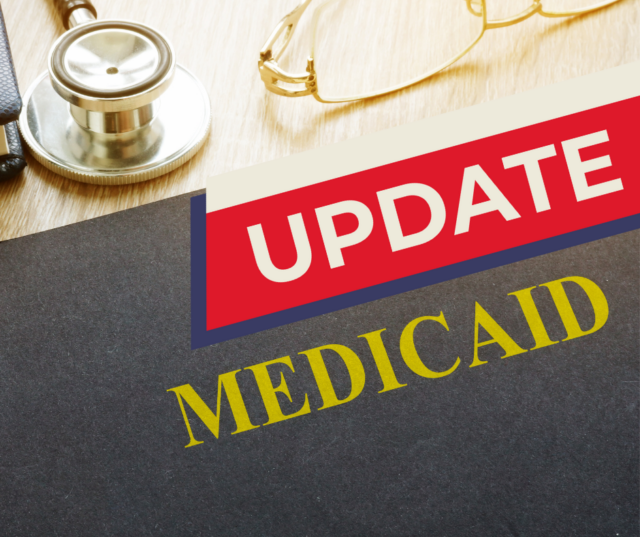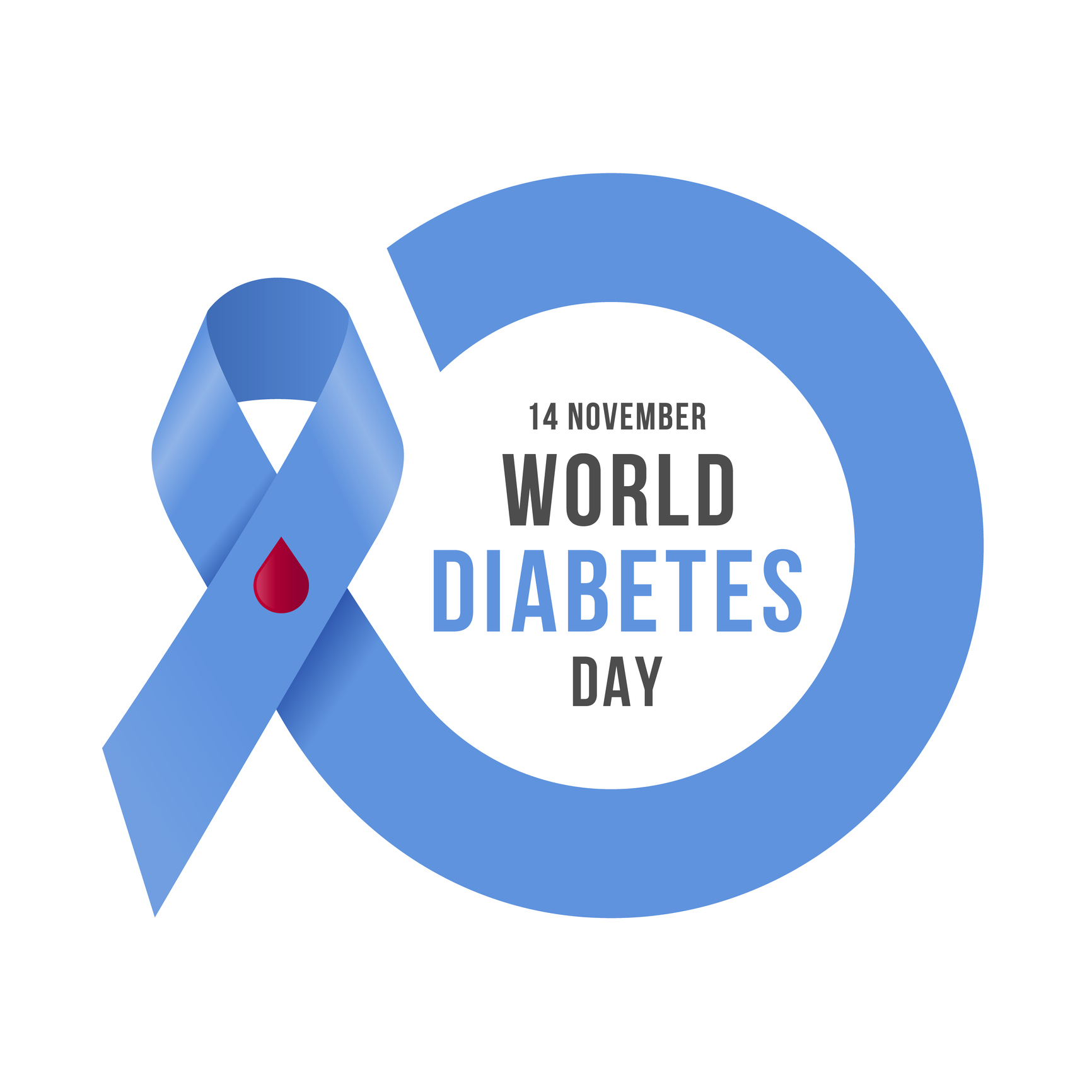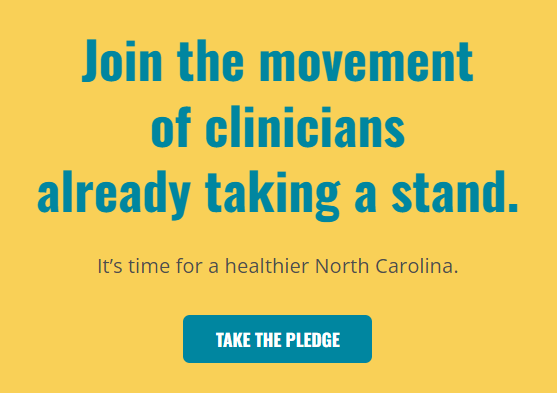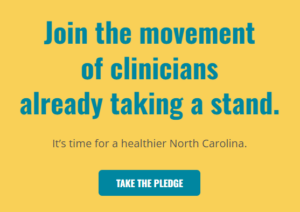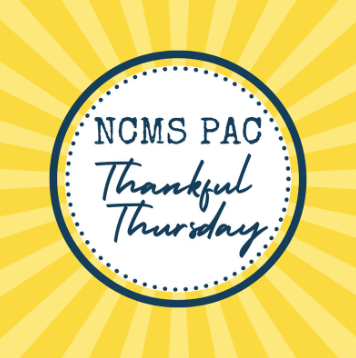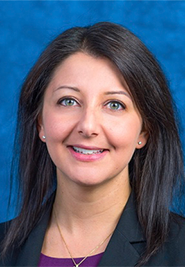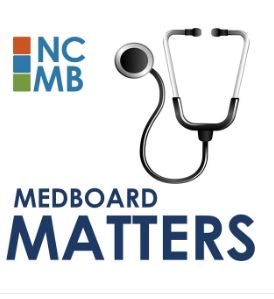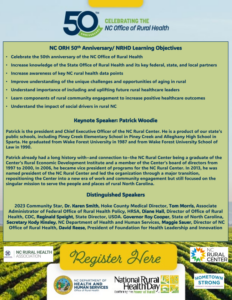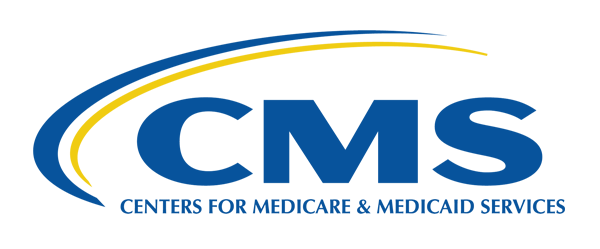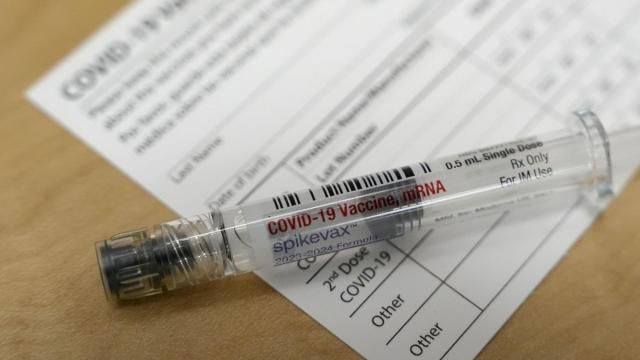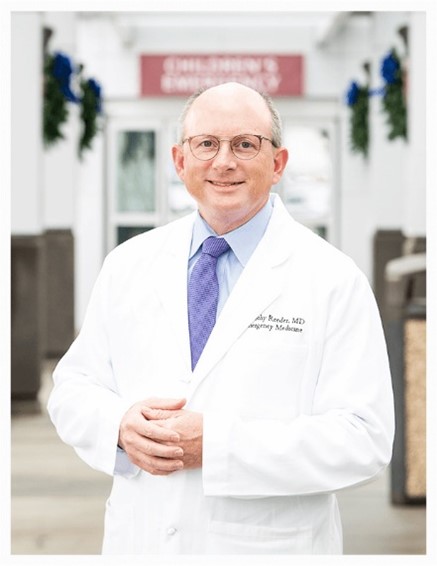CDC Warning: Invasive Tick Species Found In NC
Asian longhorned ticks have been found in 19 states, including North Carolina


According to researchers, this invasive species can reproduce quickly, hide in tall grass and survive harsh conditions.
Luckily, compared to other well-known native ticks, the Asian longhorned tick appears to be less attracted to human skin, but have been found on people and also pets, livestock, and wildlife.
Three cows in Ohio died after being bitten tens of thousands of times, promoting the CDC warning. An analysis published in the Journal of Medical Entomology reveals that scientists gathered nearly 10,000 ticks in around 90 minutes at the cow pasture.
The ticks "are light brown in color and are very small, often smaller than a sesame seed," according to the USDA Animal and Plant Health Inspection Service website, which also explains that female Asian longhorned ticks can reproduce without a male, and that "it only takes a single tick to create a population in a new location."
Many species of ticks live in the United States. Each one can carry and spread different types of germs.
When a scientist discovers a new germ in a tick, studies are needed to determine if the tick can carry and spread germs to a person or animal.
A recent experimental study found that this tick is not likely to contribute to the spread of Lyme disease bacteria in the United States, while another laboratory study found that this tick has the ability to carry and spread the bacteria that causes Rocky Mountain spotted fever (Rickettsia rickettsii), though the germs that cause Rocky Mountain spotted fever have not yet been found in these ticks in nature.
Discontinuation Notice: Flovent HFA and Flovent Diskus

On December 31, 2023, GSK will discontinue all strengths of Flovent HFA and Flovent Diskus. The authorized generics, fluticasone propionate HFA (generic for Flovent HFA) and fluticasone propionate diskus (generic for Flovent Diskus), will be added as preferred on the NC Medicaid Preferred Drug List (PDL) effective December 1, 2023.
According to the FDA, an authorized generic is an approved brand name drug that is marketed without the brand name on its label. Other than the fact that it does not have the brand name on its label, it is the exact same drug product as the branded product. Pharmacies can substitute the generic without an updated or new prescription. However, if an existing prescription for Flovent indicates brand medically necessary or dispense as written, the prescriber will need to provide a new prescription without that requirement so that the substitution is allowed.
Flovent HFA/Diskus will remain preferred so that claims will continue to pay until any remaining stock of the brand is depleted. (source)
Helping New Mothers! National Maternal Mental Health Hotline is Ready in English and Spanish.
24/7, free, confidential hotline for pregnant and new moms in English and Spanish

Pregnancy and a new baby can bring a range of emotions. Many new moms feel overwhelmed, sad, anxious, or exhausted at different times during their pregnancy or after the baby is born. The National Maternal Mental Health Hotline can help, providing 24/7, free, confidential support before, during, and after pregnancy.
The Hotline offers callers:
- Phone or text access to professional counselors
- Real-time support and information
- Response within a few minutes, 24 hours a day, 7 days a week
- Resources
- Referrals to local and telehealth providers and support groups
- Culturally sensitive support
- Counselors who speak English and Spanish
- Interpreter services in 60 languages
Call or text the National Maternal Mental Health Hotline: 1-833-TLC-MAMA (1-833-852-6262). TTY users can use a preferred relay service or dial 711 and then 1-833-852-6262.
Frequently Asked Questions about the National Maternal Mental Health Hotline.
The hotline also offers a Partner Toolkit for health care organizations to help raise awareness.
ECU Rural Family Medicine Residency Program Bringing Health Care to Underserved Communities
East Carolina University’s Brody School of Medicine and ECU Health launched a new Rural Family Medicine Residency Program in 2021 that equips physicians with specialized training in caring for patients in rural and underserved communities.
The program is designed to give recent medical school graduates interested in serving as family medicine physicians in rural communities first-hand experience in caring for patients in the kind of under-resourced settings they plan to practice in upon completion of their residency training.
The residents spend a majority of their first year of training at ECU Health Medical Center in Greenville. They then spend the next two years training in either the rural Hertford County community of Ahoskie — at the Roanoke Chowan Community Health Center and ECU Health Roanoke-Chowan Hospital — or in Duplin County at Goshen Medical Center in Beulaville and ECU Health Duplin Hospital in Kenansville.
The program exposes the residents to the breadth of family medicine — in both resource-abundant academic medical center environments and resource-scarce rural environments — so they are well-prepared to provide comprehensive care in a variety of practice settings.
While in the rural communities, the residents build connections with their patients and become integrated into the communities they serve.
Read more about the Rural Family Medicine Residency Program and their unique approach to training physicians here.
Gene Therapy for Sickle Cell Disease Approved in UK. What Could this Mean for US?
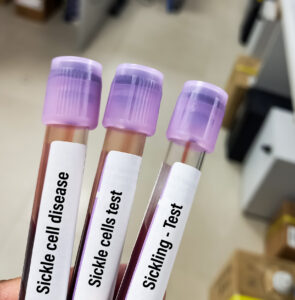
LONDON – Britain's medicines regulator has authorized the world's first gene therapy treatment for sickle cell disease, in a move that could offer relief to thousands of people with the crippling disease in the U.K.
In a statement on Thursday, the Medicines and Healthcare Regulatory Agency said it approved Casgevy, the first medicine licensed using the gene editing tool CRISPR, which won its makers a Nobel prize in 2020.
The agency approved the treatment for patients with sickle cell disease and thalassemia who are 12 years old and over. Casgevy is made by Vertex Pharmaceuticals (Europe) Ltd. and CRISPR Therapeutics. To date, bone marrow transplants, extremely arduous procedures that come with very unpleasant side effects, have been the only long-lasting treatment.
“The future of life-changing cures resides in CRISPR based (gene-editing) technology,” said Dr. Helen O'Neill of University College London.
“The use of the word ‘cure’ in relation to sickle cell disease or thalassemia has, up until now, been incompatible,” she said in a statement, calling the MHRA's approval of gene therapy “a positive moment in history.”
Learn more about this first-of-its-kind approval here.
WHO Makes Loneliness a Global Health Priority
"It is an 'underappreciated' threat to health that has now become widespread."

CNN — The World Health Organization is making loneliness a global health priority, it said Wednesday, launching a new Commission on Social Connection.
For the next three years, the commission will focus on ways to address the “pressing health threat” of a global epidemic of loneliness, reviewing the latest science and designing strategies to help people deepen their social connections. It’s co-chaired by African Union Youth Envoy Chido Mpemba and US Surgeon General Dr. Vivek Murthy, who has written and spoken extensively about the risks of social isolation and has made the issue one of his top concerns while in office.
According to one survey almost a quarter of the world feels lonely. Gallup says nearly one in four people worldwide -- which translates into more than a billion people -- feel very or fairly lonely, according to a recent Meta-Gallup survey of more than 140 countries.
Notably, these numbers could be even higher. The survey represents approximately 77% of the world’s adults because it was not asked in the second-most populous country in the world, China.
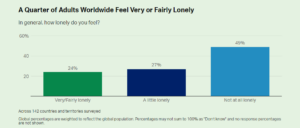
Continue to the full article from CNN here.
Continue to the full article from Gallup here.
NCDHHS: Historic Medicaid Reimbursement Rate Increases Coming Soon. Who Will be Impacted?

RALEIGH -- The North Carolina Department of Health and Human Services (NC DHHS) announced historic Medicaid reimbursement rate increases will soon be implemented for most mental health, substance use, intellectual and developmental disabilities (I/DD) and traumatic brain injury (TBI) services in North Carolina. This transformative change is the first increase to the state minimum reimbursement rates for behavioral health services in more than a decade. Raising these rates will strengthen the care workforce who provide these services and increase access to care for every North Carolinian. It will also make Medicaid expansion more impactful for the estimated 600,000 people who will gain access to these Medicaid health care services.
"These rate changes are a lasting and transformational investment in behavioral health services and whole-person care in North Carolina," said NCDHHS Secretary Kody H. Kinsley. "This will improve the foundation of care so every child and adult can get the necessary mental health and substance use disorder treatment when and where they need it."
The behavioral health care crisis impacts everyone in the state — one in four children and one in five adults are experiencing a mental health need. Rates of anxiety and depression have skyrocketed in recent years, and providers of care have been hard-pressed to keep up. There are dozens of counties in North Carolina that lack a psychiatrist and each day in North Carolina, more than 300 adults and children are waiting in emergency departments for a behavioral health care bed.
"For many, the introduction to behavioral health care is through the crisis system and hospital emergency departments,” said Kelly Crosbie, the Director of the NCDHHS Division of Mental Health, Developmental Disabilities, and Substance Use Services. "We must improve access to routine mental health care and substance use treatment in every North Carolina community, so services are available when people need them."
"The old reimbursement rates are inadequate; meaning, behavioral health practitioners, including psychiatrists, can’t cover the costs of providing care to individuals covered by Medicaid," said Dr. Carrie Brown, NCDHHS Chief Psychiatrist. "This change will help to recruit and retain more behavioral health providers, including physicians, psychologists and other licensed professionals like clinical social workers, into the public behavioral health system in North Carolina, which is critical to ensuring access to care for all North Carolinians, regardless of the health care payer."
NCDHHS received a significant investment in behavioral health care services in the 2023-2025 approved budget. A total of $835 million in one-time and recurring funds was appropriated which represents the single largest investment in behavioral health by the state legislature. Among other things, this critical funding will increase Medicaid payment rates to 100% of Medicare for applicable services like outpatient and inpatient behavioral health services and provide inflation-based increases for most enhanced behavioral health services that do not have a Medicare equivalent. For example, the overall reimbursement for inpatient behavioral health services is expected to increase by 30%. And psychiatric diagnostic evaluation will almost double from the prior rate. All of the Medicaid behavioral health rate increases will be effective for services provided on or after January 1, 2024. Additional information on these increases will be shared through a Medicaid Provider Bulletin.
To ensure adequate access to treatment and support services, many of which help prevent crises, rate funding for diagnostic evaluations and developmental/psychological testing and evaluation will also be increased above the Medicare rate, pending CMS approval. Rates for enhanced substance use disorder services and residential substance use disorder services have either recently been updated or are under consideration for potential increases in 2024 as part of a separate effort related to the NCDHHS 1115 SUD Institution for Mental Disease Demonstration waiver.
The 2023-2025 budget also allows for substantial investments in alternatives to the emergency department such as facility-based crisis services and investments in direct support professionals, including peer support professionals, who are the backbone of any functioning behavioral health, I/DD and TBI care system.
These rate increases will have a positive impact on the more than 2.3 million people served by Medicaid in allowing increased access to behavioral health services and leads the way for other employers and insurers to continue making similar investments. (source)
Wild and Weird Biology: Have Scientists Discovered the First "Vampire" Virus?

In March 2020, Tagide deCarvalho saw something truly strange - something she thinks no other scientist has ever seen before: a virus with another, smaller virus latched onto its "neck." The backstory of this viral attachment is like a master class in how wild and weird biology can be.
The two microbes are both bacteriophages, viruses that infect bacteria, that were harvested from a clump of dirt in Poolesville, MD. Bacteriophages, also called simply phages, are among the most abundant organisms on Earth. There can be millions in a gram of dirt.
But with a special kind of microscope that uses a beam of electrons to capture images, deCarvalho witnessed a truly bizarre moment - kind of like a wildlife photographer who captures an animal behavior that no one had anticipated.
"I could see literally hundreds of them had this little guy attached at the neck, and it was clearly not random," said deCarvalho, who manages the Keith R. Porter Imaging Facility at University of Maryland at Baltimore County. "We know that viruses can do some amazing, interesting things. But this is just another new thing that no one could have predicted we would see."
In a recent study in the Journal of the International Society for Microbial Ecology, deCarvalho and colleagues explain how the viral odd couple likely came to be. The small virus, called MiniFlayer, lost the ability to make copies of itself inside cells, which is how viruses reproduce. So evolution devised a clever, parasitic workaround. MiniFlayer takes advantage of another virus, dubbed MindFlayer, by grabbing onto its neck, and when they enter cells together, MiniFlayer utilizes its companion's genetic machinery to proliferate.
Is it an embrace? A stranglehold? DeCarvalho compares the relationship to viral hitchhiking. Her collaborator, Ivan Erill, a computational biologist at UMBC, likens it to a vampire sinking its teeth into its prey. It's not a perfect analogy, but he notes that sometimes, when they find MindFlayer alone, they can find "bite marks" where MiniFlayer's tendrils were attached.
"Viruses will do anything. They are the most creative force of nature," Erill said. "If anything is possible, they will come up with a way to do it. But no one had anticipated that they would do something like this."
The strange universe of viruses
The discovery started with an undergraduate class designed to teach students basic laboratory techniques, asking them to isolate phages from soil samples and study them using genetics. DeCarvalho has been working with the program for seven years and says that for many of the students, seeing the phage is an exciting moment, like when expecting parents see the ultrasound of a fetus for the first time.
In this case, undergraduates Jenell Lewis and Hira Ahmed isolated and named their phage MindFlayer in 2019. But genome sequencing returned puzzling results, suggesting some kind of contamination. When deCarvalho looked at it with a microscope, she noticed not one phage, but two.
The "virosphere," as scientists call the strange universe of viruses, is known to include elements called "satellites" that have lost their ability to replicate inside cells. Usually, satellites overcome this deficiency by integrating into the genome of the cells that they infect. They lurk there until another virus, a "helper" that has the missing ingredients, happens to enter the cell. The satellites then seize the opportunity to make copies of themselves.
MiniFlayer is a satellite, but unlike the typical version, it doesn't have the ability to hide inside cells. That leaves it with a conundrum: How to make sure it ends up in the cell with its helper at the same time.
"What this virus has done is say, okay, I'm going to attach to my helper, attach to its neck - and travel with my helper until we find a new cell," Erill said.
This is par for the course in microbiology, where tactics like molecular piracy and hijacking have been honed over millions of years of evolution. Bacteria are wildly outnumbered by their viral predators, putting them in an ongoing evolutionary arms race. Bacteria develop defenses, and viral phages develop counter-defense strategies. Phages parasitize other phages.
Researchers are interested in using phages, the natural predators of bacteria, as medicine. Phage therapy can be used to target harmful infections, an approach that could become more important as antibiotic-resistant bacteria have become a growing threat.
Terje Dokland, a microbiology professor at the University of Alabama at Birmingham who was not involved in the study, said the observation of the two attached phages was "intriguing" but called for more images and research to draw firmer conclusions about the interaction, and to tease out whether the two viruses are really co-infecting cells.
The authors hope to collaborate with groups that use a different form of electron microscopy to understand what's happening more clearly. Unlike a vampire, deCarvalho points out, the MiniFlayer isn't sucking something out of MindFlayer.
"We don't know whether or not the satellite is injecting its DNA into the helper or if it's just hitchhiking along for a ride and then falling off, like a tick," deCarvalho said. "Hopefully someone else will pick up this work and figure out that really interesting question." (source)
Grifols Receives FDA Expansion Approval at North Carolina Site

Grifols, a global leader in plasma medicines, announced it has received approval from the U.S. Food and Drug Administration (FDA) for its new immunoglobulin (Ig) purification and filling facility at its Clayton manufacturing campus, one of the world’s largest sites for producing plasma-derived medicines.
The FDA approval is for Gamunex®-C, a leading Grifols Ig brand. This enables the company to manufacture an additional 16 million grams of the therapy annually, bringing total global capacity to 60 million grams. Soon Grifols will seek FDA authorization for the new plant to also produce XEMBIFY®, its quickly growing subcutaneous Ig.
Patient need for Ig therapeutics is expected to rise, especially to treat the growing prevalence of immunodeficiencies, which account for approximately 40% to 55% of the total Ig market, according to the company.
Purification and filling follows the fractionation of plasma into separate proteins, including Ig, alpha-1 proteinase inhibitor, albumin and antithrombin-III, each indicated for different conditions. It is the last step before finished medicine vials are packaged and shipped.
Grifols Engineering engineered and built the new 150,000-square-foot, Green Globes®-certified purification and filling facility.
It is the most recent expansion of Grifols’ flagship Clayton plasma-medicine manufacturing campus.
As it approaches its 50-year anniversary in 2024, the site has evolved into a global showcase for the advanced manufacturing of hemoderivatives.
Over the last decade, Grifols has invested approximately USD 1 billion in the site, including a new plasma fractionation building that began production in early 2022 and increases the site’s overall fractionation capacity to 12 million liters/year, more than half of the company’s global total.
“Having achieved FDA approval earlier than expected for our new purification and filling plant, Grifols continues investing in new technology and expanding our plasma-medicine manufacturing capabilities to address the growing need for immunoglobulins and other plasma-protein therapeutics,” said Victor Grifols Deu, Grifols Chief Operating Officer. (source)
Lung Cancer Report Shows Troubling Statistics for North Carolina
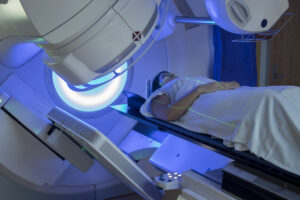
The American Lung Association in North Carolina released its 2023 “State of Lung Cancer” report, which finds that the incident rate of lung cancer cases in the state is far too high. North Carolina has 63 new cases per 100,000 people, compared to the national average of 54.6 new cases per 100,000 people. Working to increase lung cancer screenings and early diagnosis is key to addressing the burden of lung cancer in North Carolina.
The 6th annual report highlights the toll of lung cancer in North Carolina and examines key indicators including new cases, survival, early diagnosis, surgical treatment, lack of treatment and screening rates.
While the incident rate of lung cancer cases is too high in North Carolina, the report also finds that the state ranks above average for lung cancer screening and above average for lack of treatment. However, health disparities exist. Asian or Pacific Islander individuals in North Carolina are least likely to be diagnosed early.
“Lung cancer continues to be the leading cause of cancer deaths here in North Carolina and across the nation. Our recent report makes it clear that we have more work to do to increase lung cancer screening and early detection initiatives, as well as address health disparities in our AAPI community,” said Markus Hill, chair of the Lung Association’s North Carolina Board.
The report found that North Carolina ranks:
- 39 out of 48 in the nation for rate of new lung cancer cases at 63.0 per 100,000. The national rate is 54.6 per 100,000.
- 21 out of 42 in the nation for survival at 26.0%. The national rate of people alive five years after a lung cancer diagnosis is 26.6%.
- 26 out of 47 in the nation for early diagnosis at 26.6%. Nationally, only 26.6% of cases are diagnosed at an early stage when the survival rate is much higher.
- 11 out of 51 in the nation for lung cancer screening at 7.1%. Lung cancer screening with annual low-dose CT scans for those at high risk can reduce the lung cancer death rate by up to 20%. Nationally, only 4.5% of those at high risk were screened.
- 28 out of 47 in the nation for surgery at 19.4%. Lung cancer can often be treated with surgery if it is diagnosed at an early stage and has not spread. Nationally, 20.8% of cases underwent surgery.
- 12 out of 47 in the nation for lack of treatment at 17.5%. Nationally, 20.6% of cases receive no treatment.
- 26 out of 51 in the nation for smoking at 14.4%. Nationally, 13.5% of adults currently smoke.
North Carolina became the 41st state (including the District of Columbia) to expand Medicaid to adults with incomes up to 138 percent of the federal poverty level, enacting the move in its 2023-2024 fiscal budget. Beginning December 1, 2023 more than 600,000 low-income children, adults, pregnant individuals, people with disabilities, and seniors will gain access to health care.
Nationally, the “State of Lung Cancer” report finds that lung cancer survival rates are improving for everyone, including people of color. In fact, the five-year lung cancer survival rate for people of color has increased by 17% in the last two years, helping close the health disparity gap.
“Thankfully, nationally, the lung cancer survival rate has improved because of increased awareness, improved access to healthcare and cutting-edge research into new treatments for the disease,” added Hill. “We need to keep up the momentum to save more lives.” (source)
Related Reading:
American Cancer Society Updates Guidelines for Lung Cancer Screenings
Want to get involved and help the mission of the American Lung Association. Register for The Fight for Air Climb – Charlotte. This event takes place March 23, 2024. Learn more and register here.
NC Medicaid Expansion Update: Provider and Member Flexibilities
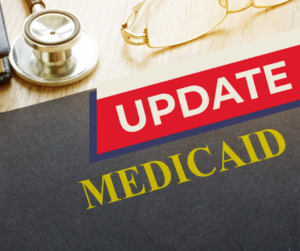
The Department has policy flexibilities for expansion members and providers treating those expansion members to ensure beneficiaries receive the care they need, while easing provider administrative burden. Unless otherwise noted, the below flexibilities apply to only expansion members.
- Providers can identify expansion members by checking the member’s eligibility in the NCTracks Recipient Eligibility Verification feature in the Category of Eligibility section.
- Expansion members, for whom these flexibilities apply, will have eligibility categories MXPNN or MXPGN listed.
The Provider Factsheet on Medicaid Expansion has more information for providers related to Medicaid expansion.
Please see the below flexibilities for expansion beneficiaries and providers for the launch of Medicaid expansion.
- Medical Prior Authorizations (PA): For medical PAs, between December 1, 2023 and May 31, 2024, health plans will honor existing NC Medicaid medical PAs. Medical PAs are any PA for physical and behavioral health services. This flexibility applies to both in-network and out-of-network providers who are active enrolled NC Medicaid providers.
- Pharmacy PAs: For pharmacy PAs, between December 1, 2023, and May 31, 2024, Standard Plans and NC Medicaid Direct will honor existing pharmacy PAs (from NC Medicaid, as well as other health plans). Previous PAs available as of December 1, 2023, will be honored through May 31, 2024, or for the life of the PA, whichever is longer. Plans may consider previous PAs and current drug therapy when making coverage determinations through May 31, 2024. This flexibility applies to both in-network and out-of-network providers who are active enrolled NC Medicaid providers.
- Expedited PA Requests/Reviews for Expansion Beneficiaries: Health plans are required to implement strategies to minimize disruption of benefits at launch of expansion, specifically related to PAs. Health plans are required to implement processes to allow providers to submit expedited PAs for expansion beneficiaries so that services are not disrupted at transition. This flexibility applies to both in-network and out-of-network providers who are active enrolled NC Medicaid providers.
- Out of Network Provider Rates: In addition to out of network requirements found in the Department’s Transition of Care policy, between December 1, 2023, and May 31, 2024, health plans must reimburse Medicaid-eligible nonparticipating/out of network providers equal to those of in network providers. This means that medically necessary services will be reimbursed at 100% of the NC Medicaid fee-for-service rate for both in- and out- of network providers.
Starting on June 1, 2024, out-of-network providers with whom the health plans have made a good faith effort to contract with, will be reimbursed at no more than 90% of the Medicaid fee-for-service rate. Note: Out of network providers must be enrolled in NC Medicaid to be reimbursed by the health plans. - Out of Network Providers Follow In-Network PA Rules: Between June 1, 2024, and August 31, 2024, health plans will permit uncontracted, out-of-network providers enrolled in NC Medicaid to follow in-network provider PA rules. Starting on Sept. 1, 2024, out-of-network providers must seek authorization for all services.
- Primary Care Provider (PCP) Changes for All Beneficiaries: Between December 1, 2023, and Aug. 31, 2024, all beneficiaries may change their PCP for any reason.
NC Medicaid remains committed to working with provider and health plan partners to verify services are paid for without undue burden to beneficiaries and providers during the launch of Medicaid expansion. Providers who experience issues during this transition period should reach out to the contacts below.
Contact
- For managed care issues: Contact the health plans leveraging the information on the Health Plan Contacts and Resources page.
- For other provider issues: Medicaid Provider Ombudsman at [email protected] or 866-304-7062.
Call for Poster Submissions: 2024 NC Ob/Gyn Society Annual Meeting
NC Society of Obstetrical and Gynecological Society
2024 Annual Meeting
March 8-10, 2024
Marriott City Center - Charlotte
Call for poster abstract submissions: Due February 3, 2024
You are invited to submit a poster abstract to the NC Ob/Gyn Society Annual Meeting. The Annual Meeting will be held over the weekend of March 8-10, 2024, at the Marriott City Center in Charlotte. We hope you will plan to attend!
This year, in addition to our resident oral presentations, we are adding a poster session to facilitate the exchange of ideas between providers and medical communities. Abstracts can be from original research, case reports, safety projects and quality improvement projects. An NC Ob/Gyn Society member must be part of the authorship. Preference will be given to projects involving learners, trainees and those involving inter-professional activities. Abstracts may be presented at other venues or in process for publication. Because we have limited space in our exhibition area, we request a limit of two abstract submissions per author.
Abstract submissions are due February 3, 2024. Please submit abstracts to Megan Eberle ([email protected]) by email as an attached Word document.
Please see the Abstract Submission Requirements and Information, and share this request for abstract submissions with residents, fellows, students, advanced practice providers or other leaders in women’s health care in your community.

Start planning now to attend to the NCOGS's 2024 Annual Meeting. The conference will be held over the weekend of March 8-10 at The Marriott City Center in Charlotte. Make your hotel reservation today online or call directly at (704) 333-9000.
Three NC Cities Rank Best Places to Start a Business

RALEIGH – Raleigh is the best place among the nation’s 100 largest metros and Durham is third, according to a new study from Charlotte-based financial services firm LendingTree.
Charlotte came in second, according to the report issued Tuesday.
Austin, Texas – often seen as Raleigh’s rival as a technology hub – fell to seventh from second.
Among the highlights: Raleigh scored a perfect 100 for business climate and finished with an overall score of 86.5. Charlotte scored 77.1, Durham 76.6.
It’s a repeat honor for Raleigh, which topped the previous LendingTree study in 2021. Charlotte rose one spot as did Durham in the new one.
About Raleigh the report says it “holds solid scores in our three categories — business climate, entrepreneurship and local economy — and places 25th or better in six of the nine individual metrics.”
THE TOP TEN
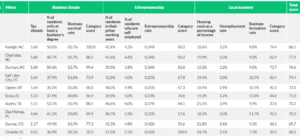
LendingTree pointed out that the “strong business climate score” was due in part to “its high rate of residents 25 and older with a bachelor’s degree or higher — 50.8%, the sixth-highest in our study.”
Raleigh also scored well in entrepreneurship, the number of workers in their “prime working years” and percentage of self-employed residents at 4.2%.
Those numbers increased from the 2021 report, strengthening Raleigh’s grip on the top spot, the study notes:
- Raleigh’s percentage of residents 25 and older with a bachelor’s degree or higher improved to sixth from seventh in our 2021 study.
- Raleigh’s proportion of residents in their prime working years jumped to seventh from ninth in 2021.
- North Carolina ranks 11th in our business survival rate metric — 82.7% of the state’s startups make it past the one-year mark, 1 percentage point above the national average of 81.7%.
Noting that Durham is the 10th smallest in the 100 metros studied, the report pointed out the city ranked “seventh for the percentage of residents with at least a bachelor’s degree (50.6%), just behind Raleigh’s 50.8%.”
However, Durham received “mediocre rankings in our entrepreneurship metrics. It placed 39th for the proportion of residents in their prime working years and 44th for the percentage of self-employed residents — significantly lower than nearby Raleigh, ranked 28th.” (source)
NCMS Member Performs Hospital's First Code STEMI Procedure
WakeMed Cary Hospital now provides advanced cardiac intervention services for patients with ST Segment Elevation Myocardial Infarction (STEMI). This specialized care and response plan for acute heart attacks re-opens blocked coronary arteries, reduces the time to treatment, and improves outcomes for STEMI patients.

The hospital treated its first Code STEMI patient, transported via EMS, on November 2. Dr. Pratik Desai from Cary Cardiology alongside the WakeMed Heart & Vascular Labs support team performed the procedure and re-opened the patient’s artery in 33 minutes.
The American Heart Association and American College of Cardiology recommended “door to balloon” time to treatment is under 90 minutes.

“This new service is beneficial for the residents of Cary, southwestern Wake County and surrounding communities by decreasing the travel time it takes to reach a hospital capable of re-opening blocked arteries and restoring blood flow to damaged heart muscle,” said Doug Trocinski, MD, emergency medicine physician and chief medical officer at WakeMed Cary Hospital. “Time is muscle when it comes to heart attacks, and this service will save lives and improve the quality of life for patients.”
Tech Giant Offers Virtual and In-Person Health Care in North Carolina

In February, Amazon acquired One Medical, which offers in-office and 24/7 virtual care services, on-site labs, and programs for preventative care, chronic care management, common illnesses, and mental health concerns. Now, Amazon is offering these health care benefits to its Prime members.
The One Medical membership is $9 a month (or $99 annually), with the option to add up to five additional memberships for $6 a month each. The membership fee includes access to virtual services at no extra cost, but in-person care or pre-scheduled remote visits will be billed to insurance or paid out-of-pocket.
North Carolina is one of the few states where One Medical is offering in-person services, available in Charlotte and Raleigh-Durham.
“When it is easier for people to get the care they need, they engage more in their health, and realize better health outcomes,” Neil Lindsay, senior vice president of Amazon Health Services, said in a news release on November 8. “That’s why we are bringing One Medical’s exceptional experience to Prime members—it’s health care that makes it dramatically easier to get and stay healthy.”
The new venture is not with scrutiny. The Federal Trade Commission raised privacy concerns.
Learn more about Amazon Health's One Medical here.
Today is World Diabetes Day! NCMS Foundation, AMA Need Your Help to Stop the Spread
More than 1 Million North Carolinians have diabetes
World Diabetes Day provides an opportunity to raise awareness of diabetes as a global public health issue and what needs to be done, collectively and individually, for better prevention, diagnosis and management of the condition.
Every year an estimated 72,032 people in North Carolina are diagnosed with diabetes.
Take a stand against diabetes!
DIABETESFREENC is a joint initiative of the NCMS Foundation and the American Medical Association (AMA) aimed to stop the spread of diabetes in NC.
The National Diabetes Prevention Program (DPP) is a lifestyle change program that has free or low-cost options for patients, regardless of their insurance provider and you can refer using any of these convenient platforms: Our Community Health Initiative (OCHI), NC CARE 360 and the DPP Navigator.
Your pledge demonstrates your willingness to support diabetes prevention in NC! Pledge TODAY!
Lung Cancer Awareness Event Offers Free Screenings and Resources Tuesday

Atrium Health Wake Forest Baptist Comprehensive Cancer Center and Atrium Health Levine Cancer are holding a free lung cancer awareness fair, Tuesday, November 14 from 8 to 11 a.m. at Wake Forest Baptist’s Downtown Health Plaza, located at 1200 N. Martin Luther King Jr. Dr. in Winston-Salem.
The free event is open to all adults, regardless of insurance coverage, income level or immigration status.
One in 16 people will be diagnosed with lung cancer in their lifetime, according to the American Cancer Society. Lung cancer is the deadliest type of cancer for both men and women, and each year, more people die of lung cancer than of breast, colon and prostate cancers combined. That is why screening and early detection is so important.
The Atrium Health Levine Cancer Mobile Screening Unit will be on site and free lung screenings will be offered to individuals who:
- Are between 50 and 80 years of age
- Are uninsured, underinsured or covered by Medicaid
- Have a 20 pack-year smoking history (one pack a day for 20 years or two packs a day for 10 years)
- Currently smoke or have quit smoking within the past 15 years
In addition to the lung screenings, a variety of resources will be offered, including:
- Education on the importance of lung screenings and early detection of lung cancer
- Education on symptoms and treatment for lung cancer
- Resources to assist with smoking cessation
- Opportunities to connect with community organizations
“The goal of this event is to educate our community on the importance of early detection and reinforce our commitment to expanding access to everyone we serve,” said Dr. Jeff Petty, co-leader of the lung cancer program at Atrium Health Levine Cancer and professor of hematology and oncology at Wake Forest University School of Medicine.
“Having the mobile screening unit is such an important tool and we are pleased to offer this opportunity in the Triad for the first time. Wake Forest Baptist is the only NCI-designated Comprehensive Cancer Center in the area, and we are committed to decreasing the burden of cancer in our communities and across the nation.”
For those who require follow-up care, the team will offer onsite counseling that educates patients and ensures they know what care is needed, why it’s needed and how to access this care.
Participants will also receive light refreshments and there will be giveaways.
Those who wish to learn more about the event may call 336-713-3665 or email [email protected].
Join NCMS for 'Making Care Primary' Education Sessions
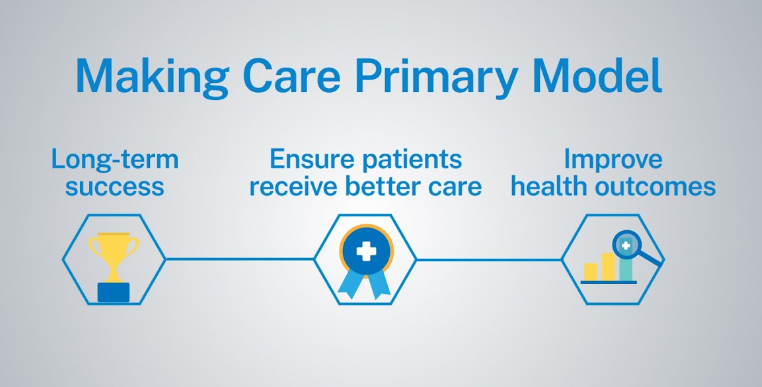
Earlier this year, the Centers for Medicare & Medicaid Services (CMS) announced that North Carolina is among eight states selected to participate in its Making Care Primary (MCP) practice model initiative.
The innovation effort model seeks to improve care for patients by:
1) expanding and enhancing care management and care coordination,
2) equipping primary care clinicians with tools to form partnerships with health care specialists, and
3) leveraging community-based connections to address patients’ health needs as well as their health-related social needs.
The NC Medical Society, in conjunction with, North Carolina Academy of Family Physicians, NC-AHEC, NC Medical Group Managers Association, and the NC Community Health Center Association will co-host two learning sessions for practices to learn more about the new CMS Innovation Center’s Making Care Primary Model: Monday, November 20th and the national session on Tuesday, November 21st.
Monday, November 20th, at 6 p.m., Nicholas Minter, MPP, Director of the Division of Advanced Primary Care, Patient Care Models Group at the CMS Innovation Center will provide a brief presentation and take questions from North Carolina practices that have applied or plan to apply for the model. Be sure to register here to attend.
Tuesday, November 21st, at 2 p.m., the MCP Team will hold a National Office Hours webinar. In addition to a live Q&A, attendees will be able to submit questions in advance by registering here. Please note, this will be the final Office Hour event before the application portal closes on Thursday, November 30 at 11:59 p.m.
Interested organizations are encouraged to begin their applications even if they are not prepared to submit at this time; doing so helps CMS provide more tailored support to applicants. Eligibility requirements and additional model details can be found in the Request for Applications.
To support application submission, the MCP team has made available the following resources:
- MCP Application example in PDF format
- Recording of last month's Office Hours, as well as a transcript and slides
Additional resources for interested applicants:
- Making Care Primary Model Overview Video and Model Overview Factsheet
- Application Tracks Factsheet, which includes an example decision tree for track selection
- Frequently Asked Questions, which are updated on a rolling basis
- Payer Partner Factsheet and Payer Partners Guide to Alignment
- CMS Innovation Center Primary Care Models Comparison
For questions about the Making Care Primary Model, please reach out to [email protected].
Register Now to Secure Your Spot at the NCMS Advocacy Summit!
You're Invited to the NCMS Advocacy Summit!

This groundbreaking event is dedicated to exploring and advancing crucial topics in healthcare. Join us on March 23, 2024, from 9 am to 5 pm at the McKimmon Center, 1101 Gorman Street, Raleigh, NC 27606.
Don't miss this opportunity to be part of a transformative event. Secure your spot today by registering!
Registration is Open! Space is Limited!
New Addiction Medicine CME Series Helps You Meet Updated DEA Requirements

The North Carolina Medical Board and Wake AHEC, in collaboration with the North Carolina Medical Society and the Addiction Medicine Fellowship program at UNC School of Medicine, have developed an eight-hour CME series that meets the new training requirement recently established by the federal Drug Enforcement Administration (DEA).
On December 29, 2022, the Consolidated Appropriations Act of 2023 enacted a new one-time requirement for active DEA registrants to complete eight hours of education on the treatment and management of patients with opioid or other substance use disorders. DEA registrants who renew on or after June 27, 2023, will be asked to certify that they have completed the required hours.
The new Addiction Medicine Series offers education on a variety of key topics in addiction medicine, including the impacts of stigma, integrating addiction treatment in the primary care setting, and treatment of substance use in special populations.
Here is the full list of classes available in the series:
1. The End of a Bygone Era: Removal of the X-waiver Next Steps in Buprenorphine Prescribing
2. Addiction In Primary Care
3. Treating Chronic Pain and Addictions
4. Responding to Pediatric Substance Use
5. Understanding the Impacts of Stigma: Substance Use Disorder
6. Addiction and Mental Illness
7. The Impact of Stigma and Bias on Substance Use Disorder Diagnosis and Treatment
8. Current State of MOUD Access
Learn more and how to register here.
It's Time for a Healthier NC. Take the Pledge to Stop Diabetes in its Tracks!
November is National Diabetes Month.
Take a stand against diabetes!
DIABETESFREENC is a joint initiative of the NCMS Foundation and the American Medical Association (AMA) aimed to stop the spread of diabetes in NC.
The National Diabetes Prevention Program (DPP) is a lifestyle change program that has free or low-cost options for patients, regardless of their insurance provider and you can refer using any of these convenient platforms: Our Community Health Initiative (OCHI), NC CARE 360 and the DPP Navigator.
Your pledge demonstrates your willingness to support diabetes prevention in NC! Pledge TODAY!
Nearly Half of NC Residents are Obese. Will Newly Approved Drug Help?
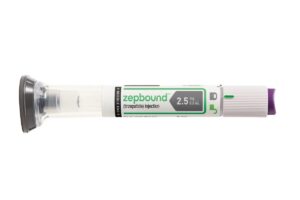
The U.S. Food and Drug Administration approved Zepbound (tirzepatide) injection for chronic weight management in adults with obesity (body mass index of 30 kilograms per square meter (kg/ m2) or greater) or overweight (body mass index of 27 kg/m2 or greater) with at least one weight-related condition (such as high blood pressure, type 2 diabetes or high cholesterol) for use, in addition to a reduced calorie diet and increased physical activity. Tirzepatide, the active ingredient in Zepbound, is already approved under the trade name Mounjaro to be used along with diet and exercise to help improve blood sugar (glucose) in adults with type 2 diabetes mellitus.
According to an analysis from NORC, a research organization at the University of Chicago, nearly half of nearly half of North Carolinians are obese. 45% of the state has a BMI over 30 — a little more than 2% higher than the national average.
Wake County was ranked in the 2023 County Health Rankings report as having the second-best health factors in the state — a measure that factors in obesity. [source]
- Orange County was ranked No. 1, the report, released by the University of Wisconsin Population Health Institute, found.
- Robeson County came in last place.
Read the full FDA press release here.
100,000 NC Residents to Participate in 5 Year Genomics Testing

The hope has always been that genetic testing can lead to better health care and also prevent many health problems in the first place. That hope is going to be put to test in a five-year program in the North Carolina Triad.
Helix, the leading population genomics company in the nation, and Cone Health, a not-for-profit health care network serving people in the North Carolina Piedmont region, will launch a population genomics testing program. It will put precision medicine to work in Alamance, Forsyth, Guilford, Rockingham and Randolph counties and beyond.
The joint project will enroll 100,000 healthy people over a 5-year period. Genetic testing will provide medical insights for Cone Health patients using Helix’s population genomics platform. It is expected that the effort will result in better, more effective care for people who develop health conditions and information that people and their providers can use to potentially delay, reduce or even prevent illness. The program will also help Cone Health uncover what risks might be occurring at disproportionate levels within communities, better understand the health of the overall population and build wellness programs for the broader community.
Enrollment in the program is optional and no cost. Participants will be screened for genetic predisposition for certain diseases and conditions, such as breast and ovarian cancer, colorectal cancer and high cholesterol. Nationwide, nearly five million people are at an increased risk of one of these conditions because of a genetic mutation.
“We’re ready to work together on the positive, life-changing impact this partnership will have on our community members,” says Marlon Priest, MD, Chief Clinical Officer at Cone Health. “This collaborative effort touches everything from our high-quality heart care services to our commitment to health equity across our communities.”
With its end-to-end genomics platform, Helix works with health systems across the nation to identify people at risk for diseases and conditions based on inherited genetic mutations. The Cone Health program will be one of the largest population health efforts in the region, enabling all participants and their health care providers to receive important information about their potential risks today and in the future.
Beyond what’s included in this program, Helix will also provide Cone Health with genetic panels for additional health conditions. Thanks to its unique Sequence Once, Query Often™ model, individual patients can have future genomic tests run without the need for an additional sample. This will give them, and their providers, access to ongoing genomic insights about their health throughout their lifetime.
“Partnering with Cone Health, one of the region’s largest and most comprehensive health networks will provide vital information about whether patients have an increased risk of disease. That impact can reverberate through North Carolina families for future generations,” said James Lu, M.D., Ph.D., Helix’s Chief Executive Officer and Co-Founder. “Cone Health is enabling the future of medicine through this program, helping individuals work with their doctors to take greater control of their health. We are proud to partner with them to positively impact public health across the state.”
Cone Health joins Helix’s fast-growing group of population genomics partners across the United States. These programs have already begun having an impact on patients’ health decisions, and the company is on pace to test millions of Americans in coming years. [source]
Spike in Syphilis Cases in Newborns Leading to Stepped-Up Prevention Measures

Alarmed by yet another jump in syphilis cases in newborns, health officials are calling for stepped-up prevention measures, including encouraging millions of women of childbearing age and their partners to get tested for the sexually transmitted disease.
More than 3,700 babies were born with congenital syphilis in 2022 — 10 times more than a decade ago and a 32% increase from 2021, the Centers for Disease Control and Prevention (CDC) said. Syphilis caused 282 stillbirth and infant deaths, nearly 16 times more than the 2012 deaths.
The 2022 count was the most in more than 30 years, CDC officials said, and in more than half of the congenital syphilis cases, the mothers tested positive during pregnancy but did not get properly treated.
Continue to full article here.
After 4,000 Deaths, NC Company Developing Injectable Drug to Cut Down on ODs

A Chapel Hill company is developing an injectable drug to cut down on deadly overdoses after more than 4,000 people in North Carolina died last year from fentanyl.
Fentanyl is the number one killer of Americans ages 18 to 45, with opioids producing the worst drug crisis in the history of the United States.
Chapel Hill-based Cessation Therapeutics says its monoclonal antibody therapy, called CSX-1004, can block the dangerous effects of fentanyl.
"Fentanyl can get to the brain really quickly," said Andy Barrett, chief scientific officer for Cessation Therapeutics. "And the brain is where it produces its pleasurable effects and its dangerous respiratory depression."
Without any intervention, fentanyl can enter the bloodstream and travel easily to the brain – but the monoclonal antibody can bind to fentanyl in the blood and prevent it from crossing that blood brain barrier.
"It would block all of the effects of fentanyl for at least a month," Barrett said.
While the focus of CSX-1004 is to prevent fatal overdoses, Barret said it could also wean people off the drug.
"We do expect that people will stop taking fentanyl over time as they start realizing that it's not going to produce any euphoric effect," Barrett said.
The Chapel Hill research is backed by millions of dollars in federal grants. The company is also looking at an injectable form.
"I think it's just an amazing use of science," said Dr. Eric Morse, who has treated opioid addiction for 22 years.
Morse said the antibody treatment could work well in conjunction with other treatments, but the underlying cause of addiction still has to be addressed.
"The vaccine's not going to help with some of the psychological damage that occurs through developing a use disorder," Morse said.
Clinical trials in humans started in August and will run into next spring. If clinical trials go as expected and the FDA approves CSX-1004, it could be available in 2026.
More than 4,000 people in North Carolina died from overdose in 2021, a 22% increase over previous year, the state reports. The increase is driven by fentanyl, and more than 775 of overdose deaths in N.C. in 2021 likely involved fentanyl, according to the state. [source]
NCMS PAC Thankful Thursday!
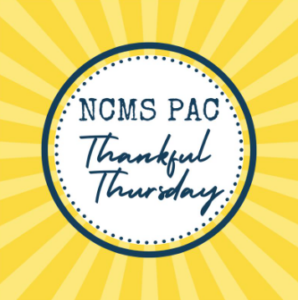
On this Thankful Thursday, we are recognizing some of our NCMS PAC Investors! Thank you for your continued investment in your patients and profession. Contact Hannah Rice ([email protected]) to learn more about how you can make a difference.
Ashley McKinney, PA-C
Christoph R. Diasio, MD, FAAP
Cynthia J. H. Brown, MD
James C. Johnson, MD
Marian E. Cranford, PA-C
Shawn Parker
CDC Director Mandy Cohen Promotes Access to Rural Health, Vaccines in NC
CDC Director and former Health and Human Services Sec. Mandy Cohen said Friday that rural health care will be “stronger” in North Carolina when Medicaid expansion begins next month.

Cohen joined other President Joe Biden administration officials who visited Vance and Granville counties on Friday to highlight efforts to address health care access in rural parts of the country.
After years of political battles to expand Medicaid, the state General Assembly voted earlier this year to continue the program, which will lead to more than half a million low-income people getting health coverage.
It will take effect on December 1. On that day, state health officials say about 300,000 people will be covered immediately. State and local agencies are working to identify other people who are qualified to help them apply.
Continue to the full article here.
Provider Groups Address Medicare's Telehealth Providers’ Home Addresses Requirement

In late October, 112 provider organizations co-signed a letter to CMS requesting that Medicare change its policies around reporting the home addresses of providers who offer telehealth services from home.
Under long-standing CMS rules, organizations whose providers offer telehealth services from home must list these providers’ home addresses on their Medicare enrollment forms, and telehealth providers who work predominantly from home must list their home address on their Medicare claims.
These requirements were waived during the COVID Public Health Emergency and are scheduled to go back into effect on January 1, 2024. The stakeholder letter urges CMS to eliminate the home address requirements entirely. At a minimum, it urges CMS to delay the effective date by one year, to provide more time to find a workable alternative.
Join AMA for a Prediabetes Quality Measures Event

On World Diabetes Day, join AMA chronic disease prevention team members Kate Kirley, MD, MS, and Jennie Folk, MHA, for a webinar and live Q&A on how electronic clinical quality measures (eCQMs) play a pivotal role in assessing and incentivizing top-tier diabetes preventive care.
Access our free STEPS Forward® toolkit: Team-Based Care of Type 2 Diabetes and Prediabetes: Approaches to Help Patients Reach Their Glycemic Goals
AMA Prediabetes Quality Measures
Tuesday, November 14, 12:00pm - 12:30pm (EST)
NCMB Discusses Results of 2023 Licensee Survey

This episode of the North Carolina Medial Board's (NCMB) podcast, MedBoard Matters, discusses highlights from the results of the 2023 NCMB Licensee Survey, conducted in late summer. Although NCMB has periodically surveyed its licensees over the years, this year was the first survey conducted since the coronavirus pandemic.
MedBoard Matters host and NCMB Communications Director Jean Fisher Brinkley discusses what NCMB licensees had to say with Clare Studwell, Founder and CEO of Flow Strategy, the company that conducted the survey for the Board.
Revised: NC Medicaid Respiratory Syncytial Virus Guidelines for 2023-2024

Many new products are available for the 2023-2024 Respiratory Syncytial Virus (RSV) season that have been approved by the Food and Drug Administration (FDA) and recommended by the Center for Disease Control (CDC) Advisory Committee on Immunization Practices (ACIP). For details on the 2023-2024 recommendations, please refer to CDC RSV ACIP Vaccine Recommendations.
The following information has been updated replaces the NC Medicaid Respiratory Syncytial Virus (RSV) Guidelines for 2023-2024 bulletin published October 5, 2023:
- Addition of new American Medical Association codes for the administration of Beyfortus.
- Clarification on the use of the COVID-19 Counseling code in light of new AMA codes.
- Clarification on the billing of Abrysvo in the office or in the pharmacy.
- Clarification of managed care coverage of pharmacy claims for Abrysvo and Arexvy.
- Addition of immunization billing guidance for Federally Qualified Health Centers (FQHC) and Rural Health Clinics (RHC).
- Addition of information on the limited availability of nirsevimab (Beyfortus).
View more information on these updates here.
You're Invited to a National Rural Health Day Celebration!
Honoring the Past, Celebrating the Present, Embracing the Future
NC Office of Rural Health 50th Anniversary on National Rural Health Day
Date: Thursday November 16, 2023
Time: 10:00 AM - 2:00 PM
Location: Bertie County Senior Center at 103 W School Street in Windsor, NC
In recognition of the NC Office of Rural Health's 50th Anniversary and National Rural Health Day, the NC Office of Rural Health and the North Carolina Rural Health Association along with its partners will offer a unique opportunity to hear from federal partners, including Centers for Disease Control and Prevention, Health Resources Services Administration’s Federal Office of Rural Health Policy, and the United States Department of Agriculture as well as our own state and local leaders as we “Honor our Past, Celebrate our Present and Embrace the Future” of the Power of Rural in North Carolina.
The program will cover topics such as Healthy Aging in Rural, The Future of Rural Health Focusing on the Youth Voice, Community Engagement, and the Celebration of NCMS Board member and NC Community Star, Dr. Karen Smith. Keynote Address: Rural Social Drivers of Health Patrick Woodie of The NC Rural Center.
This event is dedicated to celebrating the individuals and organizations in North Carolina striving to enhance the well-being of their rural communities.
NCDHHS Reminds North Carolinians to Get Annual Vaccines Amid First Flu-related Deaths of the Season
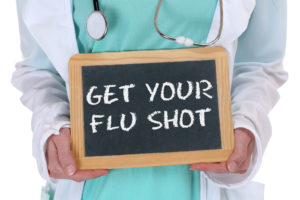
The North Carolina Department of Health and Human Services recently announced the first two reported flu-related deaths of the 2023-24 flu season. Two adults in the western part of the state died due to complications of influenza during the third and fourth weeks of October. One person had tested positive for both influenza and COVID-19. To protect the privacy of both families, additional information will not be released.
"We know both flu and COVID-19 can lead to severe complications and even death in some cases," said State Epidemiologist Zack Moore, M.D., MPH. "As flu season ramps up and COVID-19 is still circulating, it is very important for people to get their annual vaccines, practice good hand hygiene and stay home when sick."
Influenza, COVID-19 and respiratory syncytial virus (RSV) are all circulating now and are expected to increase over the coming months. Vaccinations are the best way to prevent serious illness, hospitalization, and death from these infections. Vaccinations are especially important for those at higher risk of severe viral respiratory disease, including people 65 years and older, children younger than 5, pregnant women, those with a weakened immune system and those with certain medical conditions such as asthma, diabetes, heart disease and obesity.
The Centers for Disease Control and Prevention recommends all people aged 6 months and older receive a fall COVID-19 vaccine and seasonal flu vaccine. RSV vaccinations are also available to protect older adults and for pregnant women during weeks 32 through 36 of pregnancy to protect infants. Parents should talk with their health care provider about other options to protect infants from severe RSV disease.
Flu and COVID-19 vaccinations are available at pharmacies, private medical offices, some federally qualified health care centers and local health departments. To find flu or COVID-19 vaccines near you, visit https://www.vaccines.gov/.
In addition to vaccines, the following precautions should be taken to protect against the spread of respiratory viruses:
- Regularly clean your hands with hand sanitizer or soap and water to prevent the spread of viruses to others
- Avoid touching your eyes, nose and mouth
- Clean and disinfect surfaces and objects that may be contaminated
- Cover coughs and sneezes with a tissue and then discard the tissue promptly
- Stay home when sick, except to seek medical care or testing, and take steps to avoid spreading infection to others in your home, including:
- Staying in a separate room from other household members, if possible
- Using a separate bathroom, if possible
- Avoiding contact with other members of the household and pets
- Not sharing personal household items, like cups, towels and utensils
- Wearing a mask when around other people
Detailed information about actions you can take to protect yourself and others can be found here.
You cannot tell the difference between flu and COVID-19 by the symptoms alone. Early testing and treatment with an antiviral drug can help prevent flu and COVID-19 infections from becoming more serious. Treatment is especially important for those who are at high risk of serious complications based on their age or medical conditions.
More information about how to access testing and treatment for COVID-19 can be found on the NCDHHS COVID-19 website.
A respiratory virus surveillance summary that includes information on COVID-19, RSV and flu-related activity is updated weekly at https://covid19.ncdhhs.gov/dashboard.
Construction Starts on New Behavioral Health Hospital in Greenville, NC

GREENVILLE, N.C. – ECU Health and Acadia Healthcare held a ceremony to celebrate the start of construction on its previously announced state-of-the-art, 144-bed behavioral health hospital in Greenville, North Carolina. The event occurred on the site of the new hospital – located at 2820 MacGregor Downs Road, Greenville, North Carolina 27834 – and celebrated the joint venture partnership between ECU Health and Acadia Healthcare, which will own and operate the new hospital together.
Slated to open in Spring 2025, the hospital will be a center of excellence situated less than a mile from ECU Health Medical Center. It will offer comprehensive inpatient and intensive outpatient treatment for adults, seniors, children and adolescents who struggle with acute symptoms of mental health such as anxiety, depression, bipolar disorder, post-traumatic stress disorder (PTSD), as well as treatment for co-occurring disorders. Thomas Construction Group is the general contractor, and Stengel Hill Architecture is the architect for the project.
“Too many people, including children, in North Carolina get stuck in emergency departments when they urgently need short-term and high-quality behavioral health care,” said North Carolina Department of Health and Human Services Sec. Kody H. Kinsley. “This new hospital will create lasting change in this region by making behavioral health services easier to access when and where they are needed.”
The new hospital will also serve as a teaching hospital for psychiatry, social work, nursing and other behavioral health professionals. This will address the shortage of clinical behavioral healthcare professionals in the area, training students and residents from the Brody School of Medicine at East Carolina University, many of whom will go on to practice in eastern North Carolina and carry forth ECU Health’s mission to improve the health and well-being of the region.
The hospital will include 24 inpatient beds specifically for children and adolescents with behavioral health needs. These beds will be the first of their kind in ECU Health’s 29-county service area and the only child and adolescent beds within 75 miles of Greenville, North Carolina.
“The shortage of mental health resources is a critical challenge in North Carolina,” said Dr. Michael Waldrum, chief executive officer of ECU Health and dean of the Brody School of Medicine. “We are pleased construction is underway for our new behavioral health hospital, and this moment marks another milestone in our effort to improve access to behavioral health care for the region. It will provide the hope and healing residents of Greenville and the surrounding communities need when dealing with complex behavioral health issues.”
Prior to the pandemic, nearly one in five North Carolinians were experiencing a mental, behavioral or emotional disorder, according to a report from the North Carolina Institute of Medicine’s Task Force on Mental Health and Substance Use. In the past three years, national data indicates a growing trend of depression and anxiety symptoms. This partnership demonstrates a commitment to addressing mental illnesses and substance use disorders, normalizing and treating them with the latest science and medicine in appropriate care settings.
“This new hospital will provide North Carolinians with expanded access to quality behavioral health services and treatment from specialized clinical teams in a carefully designed environment,” said Chris Hunter, chief executive officer of Acadia Healthcare. “We are so proud to be affiliated with ECU Health, working together to address the strong need in this area and building upon their legacy and commitment to behavioral health services. This hospital will be a strong member of the Greenville community, collaborating with all organizations, hospitals and first responders. It will be a beacon of hope for patients and families in eastern North Carolina.”
To learn more about the partnership between ECU Health and Acadia Healthcare, visit ENCBehavioralHealth.org. [source}
CMS Finalizes Physician Payment Rule that Advances Health Equity

The Centers for Medicare & Medicaid Services (CMS) announced it is finalizing policies to support primary care, advance health equity, assist family caregivers and expand access to behavioral and certain oral health care. These policies are included in the calendar year (CY) 2024 Medicare Physician Fee Schedule (PFS) final rule, which also provides payment for principal illness navigation services to help patients and their families navigate cancer treatment and treatment for other serious illnesses, supporting the Biden-Harris Administration’s Cancer Moonshot mission to accelerate the fight against cancer.
The CY 2024 PFS final rule includes updates to PFS payments for clinicians as required by law. In accordance with update factors specified by law, finalized payment amounts under the PFS will be reduced by 1.25% overall compared to CY 2023. CMS is also finalizing increases in payment for visits for many services, such as primary and longitudinal care. Overall, the finalized CY 2024 PFS conversion factor is $32.74, a decrease of $1.15, or 3.4%, from CY 2023.
Read the full press release here.
NCMS Member Dr. Grant Campbell Announces Candidacy for NC House

KANNAPOLIS — Local physician, Dr. Grant Campbell has declared his intent to run for the open seat in District 83 of the North Carolina House.
Campbell graduated with honors from the University of North Carolina at Chapel Hill where he also received his medical degree. He has been treating patients in the area for over 25 years.
While already in private practice, Dr. Campbell learned of the critical shortage of surgeons in the military and enlisted in the United States Army Reserve. He was deployed three times and served in Kuwait, Iraq and Afghanistan receiving multiple decorations while service in combat theaters. He finished his Army service in 2017 and was honorably discharged as a Lt. Colonel and returned to treating his local patients full time.
Some of his top priorities include improving educational and healthcare options for rural NC communities, providing training opportunities for citizens to take advantage of NC workforce demands, addressing the opioid crisis, and ensuring veterans get proper educational and credentialling credit for training they received in the military.
Campbell currently serves on the North Carolina State Board of Community Colleges and on the Board of Directors/Advisors of the UNC General Alumni Association and the Independence Fund.
Campbell and his wife of 26 years Anita live in Kannapolis with their dog and visit frequently with their two adult children.
The newly created District 83 spans portions of Cabarrus and Rowan Counties whose representatives were Rep. Kristin Baker and Rep. Kevin Crutchfield, respectively. Both have given Dr. Campbell their full endorsement. Rep. Baker states that, “my friend Grant Campbell, a physician and veteran, is a man of great integrity and character who will serve out county well.” Rep. Crutchfield adds “Grant Campbell is an outstanding human being. I support him 100% in his campaign for the NC House District 83 seat. He is a servant in constant search of ways to give back to the community he serves, and I am confident he will continue that service for this district. I look forward to serving with Grant in the North Carolina Legislature.”
To find out more about Dr. Grant Campbell, visit CampbellforNC.com.
NCCHCA Helps Community Health Centers Replenish COVID-19 Vaccines

The National Association of Community Health Centers® (NACHC) is working closely with the White House, CDC, and manufacturers to increase access to COVID-19 vaccines, primarily through the CDC's Bridge Access Program.
Please let the NC Community Health Center Association (NCCHCA) know if you have insufficient amounts of COVID-19 vaccines. NACHC will directly request the CDC send additional vaccines for community health centers (CHCs) that are interested.
NACHC is also working closely with the CDC to ensure health centers can access the Bridge Access Program’s COVID-19 vaccines. If you are having any issues related to access or enrollment, please complete this form. NACHC is using this feedback to work closely with the CDC and State Immunization Managers to address state and local challenges. Please reach out to Vacheria Keys ([email protected]) with any questions.
Drug Supply Chain and Security Act Deadline Approaching

The Drug Supply Chain and Security Act (DSCSA) establishes a national system for tracing prescription drugs through the supply chain and sets national licensing standards to enhance the U.S. Food and Drug Administration’s (FDA) ability to help protect consumers from suspicious drugs.
Starting November 27, 2023, health centers must obtain a Global Location Number (GLN) for each site receiving products. The GLN helps businesses know who is involved in transactions and where things are located throughout the supply chain.
Review the DSCSA factsheet here to understand how to obtain GLNs and to learn more about DSCSA.
Join a Side-by-Side Webinar with NCDHHS' Division of MH/DD/SUS

Join staff from NCDHHS' Division of Mental Health, Developmental Disabilities and Substance Use Services (MH/DD/SUS) on November 20 at 2 p.m. to learn more about policies and programs that affect the Mental Health, Intellectual and Developmental Disabilities, Substance Use Services, and Traumatic Brain Injury community.
The goal of these monthly webinars is to bring everyone together in one (virtual) place to share ideas for public policy that will improve the lives of North Carolinians.
Register for the meeting and see a flyer (Spanish) for more information.
NCMB Updates Telemedicine, Opioid Position Statements
NCMB recently updated two important position statements – Telemedicine and Policy for the Use of Opioids for the Treatment of Pain.

Due to continued enhancements and increased utilization of telemedicine, the Board voted to revisit its Telemedicine position statement in a year, in or around September 2024, to ensure it includes the most up-to-date guidance.
The Board also voted to revisit the opioid position statement after the Federation of State Medical Boards finalizes its draft Strategies for Prescribing Opioids for the Management of Pain policy in May 2024, to consider if additional revisions should be made to the position statement.
Telemedicine
NCMB initially adopted its Telemedicine position statement in 2010, at a time when few NCMB-licensed physicians and PAs had incorporated telemedicine into their practices. The Board reviewed and made minor revisions to the position in 2014 and 2019. Then, in 2020, our state saw telemedicine use mushroom almost instantly in response to the coronavirus pandemic. NCMB’s 2023 Licensee Survey documented our state’s rapid embrace of telehealth, finding that telemedicine use among NCMB licensees soared to 77 percent during the COVID-19 pandemic, up from 16 percent telemedicine use pre-pandemic. The survey documented current telemedicine use at 64 percent.
With telemedicine now a regular feature for a majority of licensees, NCMB saw a need to significantly expand the Telemedicine position statement to address multiple questions and issues that have arisen regarding telemedicine practice. NCMB requested and received input from licensees, telemedicine industry leaders and other stakeholders, which was incorporated in the final version of the updated position statement approved in September. New content in the position statement includes:
• Clarification on when a telemedicine provider treating patients located in North Carolina should be licensed to practice in North Carolina, and when a provider is exempt. Exemptions include 1. Provider-to-provider consultations across state lines where a North Carolina licensee retains responsibility for the North Carolina patients and 2. Episodic follow-up care for patients who are in North Carolina temporarily but have an established clinician-patient relationship with a provider in another state. The latter exemption would cover patients attending college or vacationing in North Carolina.
• Expanded guidance on prescribing to patients after telemedicine consultation
• A new section on the sale of goods or products to patients following a telemedicine consultation
• A new section on continuity of care and referral in emergent situations
Policy for the Use of Opioids for the Treatment of Pain
NCMB adopted the 2016 CDC Clinical Practice Guideline for Prescribing Opioids for Pain in early 2017. CDC updated this document in 2022, providing additional guidance on the intent of the guideline and how it should be used in providing patient care. At its September Board Meeting, NCMB updated its position statement to reflect that the Board recommends the 2022 CDC Guideline as a resource for licensees who prescribe opioids for pain. The position notes that the 2022 version emphasizes the following key aspects of providing pain management care:
• Providing individualized pain care in the setting of a complete assessment of the risks vs. benefits of all available treatment modalities, including but not limited to opioids
• Incorporating patient input into the choice of the various modalities used to treat a given patient’s pain needs using shared decision-making
• Maximizing multimodal therapies for a given patient’s pain care, which could reduce the need for opioid therapy
• Refraining from abruptly discontinuing or rapidly tapering chronic opioid therapy for those patients already on long-term therapy
• Thoroughly documenting the decision-making process behind the initiation, continuation or discontinuation of opioids for any given patient
Read the revised position statements:
Policy for the Use of Opioids for the Treatment of Pain
NC Announces Funding to Expand Hospital Violence Prevention and Intervention Programs

The North Carolina Governor's Crime Commission announced $750,000 in funding to expand hospital-based violence prevention and intervention programs in North Carolina. Novant Health New Hanover Regional Medical Center was awarded a portion of the funds to support its regional hospital-based violence intervention project and expand its use across its footprint.
On Wednesday, the NC Department of Public Safety, NC Governor's Crime Commission and the NC Department of Health and Human Services visited Novant Health New Hanover Regional Medical Center to learn about its Wilmington Hospital Violence Prevention Program and held a roundtable discussion about state and community strategies that are working to reduce violence. This collaboration is part of a statewide effort to keep families and communities safe from violence-related injuries and deaths.
During the visit, state and local leaders learned more about ways Novant Health will also expand the program to include Charlotte with the Governor's Crime Commission funding. The hospital program is part of a community-based violence interruption strategy that includes Wilmington's Port City United, which uses a Cure Violence Global model to provide mediation and mentorship in New Hanover County Schools within the community.
Following the tour, a roundtable discussion included additional community partners and discussed ways the state and local partners can continue to collaborate to address violence in our communities.
Some additional key efforts in North Carolina to address community violence include:
- Expected receipt of federal funding through the Bipartisan Safer Communities Act to support more community-based violence prevention and interruption programs similar to Port City United.
- Launch of NC S.A.F.E and distribution of gun locks and safes to community organizations and local health departments.
- Prioritization by the Governor's Crime Commission Victims of Crime Act dollars to fund hospital violence prevention programs like those that support Novant Health New Hanover Regional Medical Center's program.
- Creation of the Governor's Office of Violence Prevention through an Executive Order signed in early 2023.
This work follows the white paper released by NCDHHS in November 2022 that provides a framework for how to address violence and its causes as public health issues and the July North Carolina Medical Journal, which was devoted to the issue.
New Advancements Could Make Cure for Sickle Cell Disease a Reality
The FDA is considering the first CRISPR gene editing treatment that may cure sickle cell.

With sickle cell disease — also called sickle cell anemia — red blood cells take on a folded or sickle shape that can clog tiny blood vessels and cause progressive organ damage and pain, and can lead to organ failure. The sickle cells also die earlier than they should, which means the person is constantly short red blood cells.
An independent committee is helping the FDA think through how it should evaluate a treatment called exa-cel that could potentially cure people of sickle cell disease, a painful and deadly disease with no universally successful treatment.
If approved, exa-cel, made by Boston-based Vertex Pharmaceuticals and the Swiss company CRISPR Therapeutics, would be the first FDA-approved treatment that uses genetic modification called CRISPR.
Continue to full article here.
American Cancer Society Updates Guidelines for Lung Cancer Screenings
American Cancer Society: More people should get screened for lung cancer

The American Cancer Society (ACS) has updated its lung cancer screening recommendations, expanding the pool of current and former smokers who should be screened for it every year.
New recommendations expand the age range for testing, to between 50 and 80. Previously, the age range had been 55 to 74. The group is also getting rid of a barrier to screening for former smokers. The previous guidelines said if you quit smoking more than 15 years ago, you didn't necessarily need to be screened. Now even someone who quit 40 years ago might be eligible to be screened.
ACS estimates an additional 5 million Americans should be scanned under the new guidelines. The screening test is a low-dose computed tomography scan (also called a low-dose CT scan, or LDCT). [source]
FDA: Children May Be Receiving Wrong Dose of New COVID-19 Vaccine
The FDA has issued an alert to health providers who provide Moderna's updated COVID-19 vaccine to children under the age of 11.

The Food and Drug Administration said there may be confusion over the dosage of the vaccine, which is available to children as young as 6 months of age.
According to the FDA, a single dose of Moderna's current vaccine for children 6 months to 11 years old contains "notably more" than the 0.25 mL dosage children should receive.
The FDA said some health care providers may not realize that the single dose vial of the vaccine contains notably more than 0.25 mL of the vaccine.
Pediatricians and health providers should withdraw 0.25 mL from the vial and discard the rest, the FDA said.
Healthcare providers, parents and caregivers who have questions may contact FDA’s Center for Biologics Evaluation and Research at [email protected]. [source]
NCDHHS to Livestream Fireside Chat and Tele-Town Hall TODAY!

The North Carolina Department of Health and Human Services will host a live fireside chat and tele-town hall on Thursday, November 2, from 6 to 7 p.m., to discuss how people can access support to help quit smoking, vaping or using tobacco, as well as other ways they can care for their health and manage stress.
Event participants include:
- Vickie Fowler, M.D., Family Medicine Specialist, WakeMed
- Stephanie Gans, LCAS, MSW, NCTTP, Tobacco Treatment Specialist, NCDHHS
- LT Madeline Wright, PharmD, Clinical Pharmacist, Cherokee Indian Hospital Authority
Tobacco use is the number one preventable cause of death and disease in North Carolina. Smoking is a particularly major risk factor for lung cancer with 80% of all lung cancer caused by cigarette smoking. Additionally, people who smoke are at higher risk of severe illness from respiratory viruses, including flu and COVID-19.
Several populations across the state, including American Indian communities, face greater barriers to access care and support to quit commercial tobacco use. More than one in four American Indian adults in North Carolina smoke — a rate more than 1.5 times greater than for white, non-Hispanic adults. greater than for white, non-Hispanic adults.
Fireside chat and tele-town hall panelists will discuss the following:
- Resources and support to help quit or limit use of commercial tobacco products
- Ways to reduce stress and improve mental health
- Information on treatments to help quit tobacco and how to access them
- Importance of preventative screenings, including for lung cancer
Programs like QuitlineNC in North Carolina connect individuals with resources to help themselves or loved ones quit commercial tobacco use, not tobacco for sacred and traditional ceremonies used by many American Indian tribes and communities.
The fireside chat will stream live from the NCDHHS Facebook, Twitter and YouTube accounts, where viewers can submit questions. The event also includes a tele-town hall, which invites people by phone to listen in and submit questions. People can also dial into the event by calling 855-756-7520 Ext. 95267#.
Join Us This Month for the Next NCMGMA/NCMS Lunch & Learn Webinar
November Lunch & Learn Webinar
Aetna State Health Plan + Clear Pricing
Tuesday, November 14, 2023 | 12:00 PM - 1:00 PM EST | Zoom
Join us on November 14th for NCMGMA and NCMS's November Lunch & Learn with Aetna representatives who will be covering general Aetna Network information with a focus on the State Health Plan and a run through of the Clear Pricing Project (CPP).
Webinar Speakers
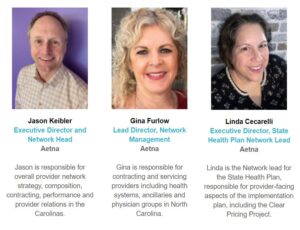
Registration
This webinar is free but you must be registered to attend. Space is limited so register early! After you register, you will receive an emailed confirmation with webinar and phone-in instructions. Please check your spam/junk folder if you do not see the confirmation email after you register.
Continuing education credit may be granted through your professional organization (MGMA, PAHCOM, AHIMA, etc.). Please self-submit for these organizations.
Questions
Please contact the NCMGMA offices at [email protected].
NCTracks Announces November Provider Training Schedule
Registration is Now Open for the November 2023 provider training courses.

NCTracks zoom courses can be attended remotely from any location. Courses offered this month include:
- Add Update Credentials
- ES User Role- Upload Documents- Abbrv. MCRs
- Submitting Professional Claims
- Submitting Institutional Claims
- Web Portal Applications
- OPR Enrollment
- Changes to Prior Approval Orthodontic Models
Please see the document linked below for more information on course schedule and access to zoom links:
NCMS Member Dr. Ashok Jain Receives Lifetime Achievement Award
Congratulations to NCMS member Dr. Ashok Jain, MD, FAAP, MBA, CPE on being honored by the Greater Fayetteville Business Journal with a Lifetime Achievement Award.

Dr. Jain has been making an impact in North Carolina since he opened his first pediatrics practice, Hope Mills Pediatrics, in August of 2003. With only the goal of helping those in need, he made a business decision that would impact the course of his career.
“The day I opened my practice I put it on my website in bold, ‘I will take care of any patient who walks into my office.’ Any child who is sick, I will take care of them. Whether they have money or no money, insurance or no insurance. I don't care, I will take care of a sick child,” shared Jain.
Read the full article here.

NCMS PAC Thankful Thursday!

On this Thankful Thursday, we are recognizing some of our NCMS PAC Investors! Thank you for your continued investment in your patients and profession. Contact Hannah Rice ([email protected]) to learn more about how you can make a difference.
Amy G. Bryant, MD
Arthur E. Apolinario, MD, MPH, FAAFP, CH
Marc P. Guerra, MD
Palmer Edwards, MD, DFAPA
Rebecca Hayes, MD, FAAFP
Robert W. Monteiro, MD
NCMS Past President Appointed to the Justus-Warren Heart Disease & Stoke Prevention Task Force
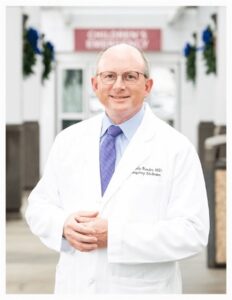
One of the bills passed by the General Assembly in the waning hours of the 2023 legislative session was Senate Bill 761. This bill included numerous appointments to agencies and boards and among them was confirmation of Dr. Tim Reeder as a member of the Justus-Warren Heart Disease and Stroke Prevention Task Force. Dr. Reeder, an emergency medicine physician at ECU in Greenville, is a current member of the NC House of Representatives and a former president of the NC Medical Society.
In 1995, the NC Medical Society partnered with the NC Hospital Association, the state’s academic medical centers and the American Cancer Society to advance legislation that created the task force.
That year, the NC General Assembly passed a bill establishing the North Carolina Heart Disease and Stroke Prevention Task Force, which was renamed in 2003 to honor the contributions of Representative Larry Justus of Hendersonville and Senator Ed Warren of Greenville.
The Task Force is comprised of clinicians, members of the General Assembly, public health leaders and other stakeholders who are committed to improving cardiovascular health. The Task Force and its Stroke Advisory Council work with stakeholders throughout the state to prevent cardiovascular disease and to promote timely diagnosis and effective treatment of acute cardiovascular events.
The NC Medical Society and the NC Neurological Society recently collaborated with the Task Force and stakeholders on stroke center designations for our state (House Bill 600).
The Task Force is comprised of 27 members.
- Six legislators (three each recommended by the Speaker of the House and President Pro Tem of the Senate)
- Health professionals
- Survivors
- Members of volunteer and governmental organizations
- One business leader
- One news director
The remaining three appointees are leaders within the North Carolina Department of Health and Human Services (DHHS).
Dr. Reeder’s term on the Task Force is effectively immediately and extends through June 2025.










